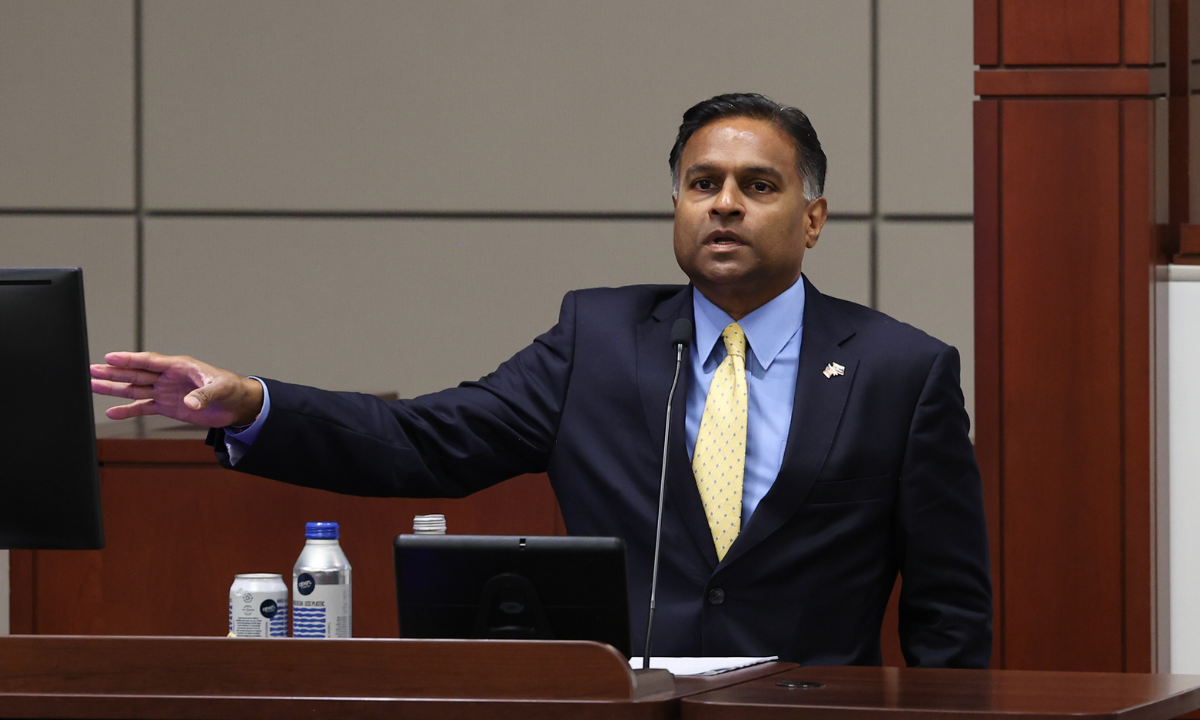Margaret Artz ‘13 and Lexi Menish ‘11 returned to Vanderbilt Law School earlier this month for a presentation titled “Hot Topics in International Arbitration,” taking a deep dive into one of the most controversial areas of international law at the moment – investor-state arbitration. Artz is counsel at WilmerHale, focusing on international arbitration in the renewable energy, aerospace, and oil and gas industries. Menish is an Independent Counsel and Arbitrator based in Oregon, representing clients in commercial and treaty arbitrations, as well as advising clients on public international issues like investment treaty negotiations.
Artz and Menish explained the origins of investor-state arbitration, common criticisms, and more.
Defining Investor-State Arbitration
Menish defined investor-state arbitration as disputes between an investor and a state that usually involve bilateral investment treaties (BITs) and whether or not their investments are protected under them. There is a very large network of treaties that give private investors the right to sue a state directly in arbitration. Investor-State Arbitrations are also known as Investor-State Dispute Settlements (ISDS).
History of the ISDS Regime
Menish offered a brief history of investor-state arbitration, which has its roots in a centuries-old principle of international law called Diplomatic Protection, wherein investors have the right to certain protections when they go into a foreign country. This law has been a part of the Law of Nations since 1700. When a foreigner is admitted into a state’s country, that state has an obligation under Diplomatic Protection to offer the foreigner the same protections given to its own citizens. Foreigner-owned property is also part of the wealth of the investor’s home state; if the host state interferes with the investor’s property, the home state has the right to intervene.
Disputes between home and hosts states have been resolved with violence, like the British and German navy blockade of Venezuela’s ports in the Venezuelan crisis of 1902–1903, but also through mixed-claim tribunals. These tribunals proved to be an effective and peaceful approach to resolution until the Communist Revolution in 1917.
After the fall of the Soviet Union in the late 20th century, there were many debates on what obligations and rights of host states and investors. Mass decolonization during this time period also caused disputes, as former colonies wanted their resources returned. A new world economic order paved its way through as the old principle of international law came under fire.
Why are Investor-State Dispute Settlements So Controversial?
Menish detailed why ISDS are hotly contested all around the world and across the aisle in the halls of Congress. Democrats believe ISDS regimes s are undemocratic, expensive for taxpayers, hurt workers and consumers, create negative implications for the environment, and favor large corporations at the expense of poorer governments. Republicans believe that ISDS infringes on the rights and U.S. sovereignty, as non-American private lawyers get to decide whether U.S. laws are valid or not.
Common Criticisms of ISDS
Artz and Menish explored the argument that ISDS undermines states’ rights in favor of large corporations. For instance, Argentina encountered 43 claims from investors seeking compensation for damages during the 1990s. While this critique holds some validity, they noted that states have successfully contested and prevailed in half of these cases. Moreover, it’s not solely large corporations initiating claims; often, individual claimants seek restitution for property damages. Additionally, they explained that the assertion of a loss of sovereignty is not entirely accurate, as the United States willingly enters into treaties and agreements.
Environmental, Social, and Governance (ESGs)
Artz and Menish discussed some of the ESG-related issues that lie at the core of many critiques of ISDS. The rise of cooperate social responsibility and attendant negative climate impacts is one of many areas of ISDS that are being analyzed by different parties. There is a prefoliation of different metrics that assess companies on these goals, the United Nations’ principles of suitable investment, for one. ESGs have caught on as global energy demand grows, but ISDS have historically not been a great avenue for ESG disputes.
Future of ISDS
Artz and Menish noted the various approaches states have taken to investor-state arbitration. Many states have decided not to use ISDS at all, throwing them out of practice. Bolivia was the first to withdraw, although they did not terminate the underlying BIT. Other states, such as India, have terminated all of their BITs, while others are considering alternative systems. The European Union has suggested the establishment of a multilateral court system.
This talk was sponsored by the International Legal Studies Program.


